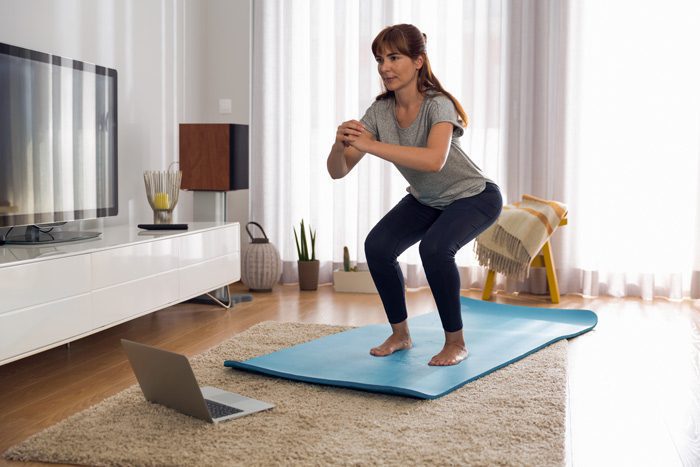Learning to Deal with Uncertainty Without Putting Your Recovery at Risk
 None of us can predict the future, no matter how much we try. However, the uncertainty surrounding the COVID-19 coronavirus pandemic has made it particularly difficult for people in recovery to continue moving forward in their quests to build lives free from the burden of addiction. If you’re struggling with how COVID-19 has upended your career, finances, relationships, and treatment plans, this post will offer some tips to help you cope with uncertainty without putting your recovery at risk.
None of us can predict the future, no matter how much we try. However, the uncertainty surrounding the COVID-19 coronavirus pandemic has made it particularly difficult for people in recovery to continue moving forward in their quests to build lives free from the burden of addiction. If you’re struggling with how COVID-19 has upended your career, finances, relationships, and treatment plans, this post will offer some tips to help you cope with uncertainty without putting your recovery at risk.
Acknowledge Your Feelings
Not knowing what to expect can trigger a wide range of complicated emotions. You may be angry, sad, frustrated, and afraid—sometimes all at once. Essentially, you’re grieving the loss of control.
Whatever you’re feeling, it’s important to acknowledge the impact COVID-19 has had on your life and your recovery journey. Writing in your journal can provide a safe yet private way to process your emotions. Talking to your sponsor, a trusted friend, or your treatment team can also help you better understand how your feelings are affecting your day-to-day choices.
Pause Before You React
Uncertainty can trigger the body’s fight or flight response, which can make you prone to impulsive behavior. It’s better to take a deep breath and wait a few minutes before reacting to information or situations that feel uncertain.
Decisions made on impulse are generally made on the basis of feelings, not facts. Take a moment–or a day or more–to consider all of your options and determine if you’re assessing the situation correctly before you decide how to proceed.
Focus on What You Can Control
When so much of life feels out of your control, focusing on the actions you can take to make a difference will help you feel better about what happens next. This can keep you from slipping into a victim mindset that puts your recovery at risk.
For example, if you’re worried about COVID-19, you can:
- Eliminate unnecessary errands or social visits.
- Wear masks whenever you’re in public.
- Stay six feet apart from others as much as possible.
- Wash your hands regularly.
- Disinfect high-touch surfaces in your home each day.
- Check in on your elderly or disabled loved ones who are at a high risk of complications from coronavirus infection.
- Plan virtual activities for friends and family so you can all stay in touch regardless of what the future holds.
Rely on Trusted Sources of Information
The internet has given us access to an endless library of information with the touch of a button, but much of what you’ll find is misleading or inaccurate. This can increase your feelings of uncertainty.
Protect yourself by turning to reliable sources of information. If you’re interested in learning about COVID-19, turn to the World Health Organization, CDC, or the South Carolina Department of Public Health and Environmental Control. If you have questions about the treatment options for addiction recovery, ask your healthcare provider to recommend resources that meet your specific needs.
Make Self-Care a Priority
During uncertain times, it’s easy to get so focused on the circus at hand that you neglect to take care of your mind, body, and spirit. This can put you at risk of relapse. Important self-care tools for a lasting recovery include:
- Plan a digital detox. While it’s important to stay informed, being connected to the news 24/7 can do more harm than good. If you’re feeling overwhelmed, a digital detox may be in order. Put down your phone, turn off your computer, and refocus your attention. Meditating, praying, or spending time in nature can be a great way to unwind when uncertain circumstances make life seem overwhelming.
- Eat nutritious meals. Food fuels your body, and drops in blood sugar can make you feel moody and irritable. Strive for balanced meals with whole grains, lean protein, and a variety of fruits and vegetables. Drink plenty of water to stay hydrated.
- Keep moving. Exercise releases endorphins and helps you manage your stress level. Aim for at least 30 minutes of activity per day, whether it’s a guided workout or a long walk after dinner.
- Get plenty of sleep. If you’re not getting enough rest, you’ll be too fatigued to make smart decisions. Strive to cut out evening caffeine, avoid screen time before bed, and keep a consistent sleep schedule.
- Don’t be afraid to reach out. If you’re struggling, we want to help. Waypoint Recovery Center’s South Carolina drug and alcohol addiction treatment program will remain open throughout the coronavirus pandemic. If you’re feeling overwhelmed by the uncertainty surrounding COVID-19 and your recovery journey, we’re here to help.




